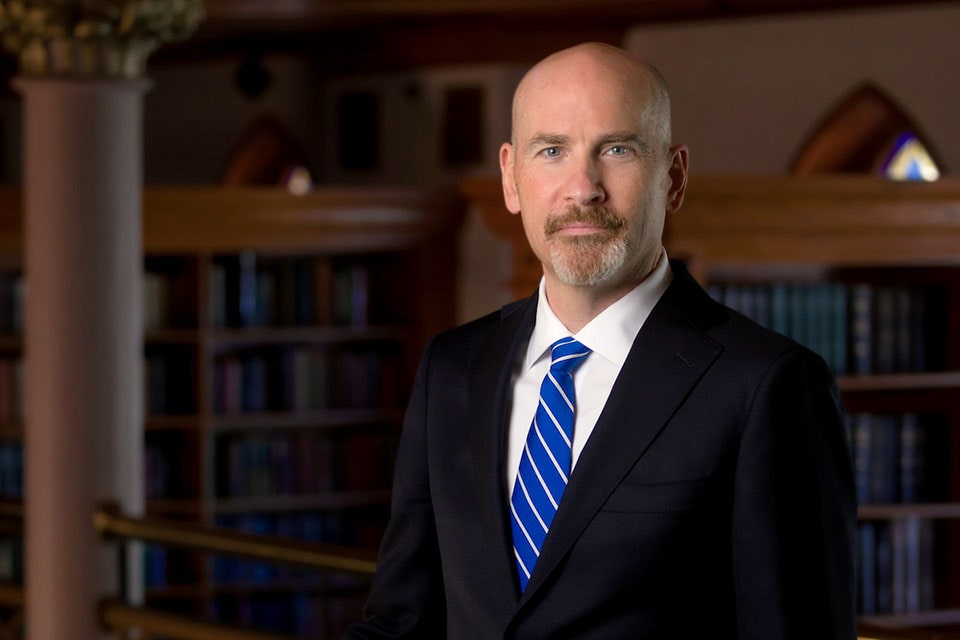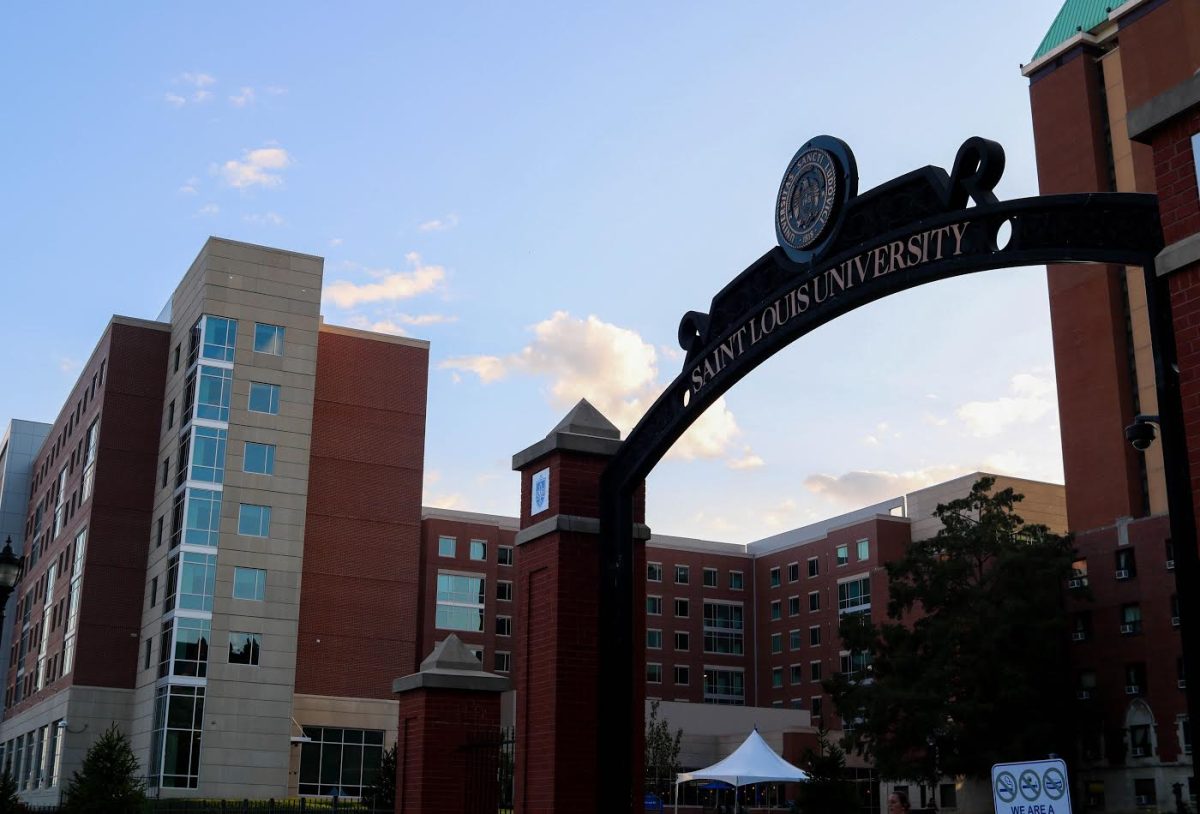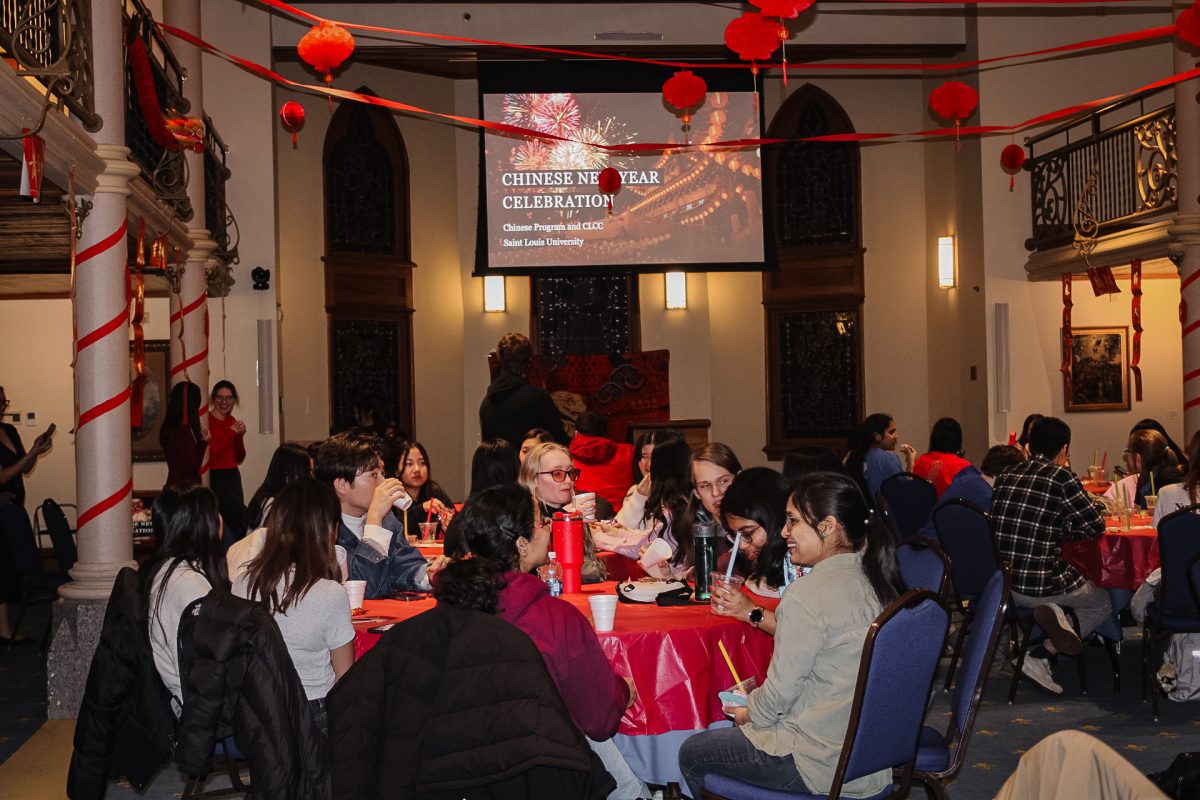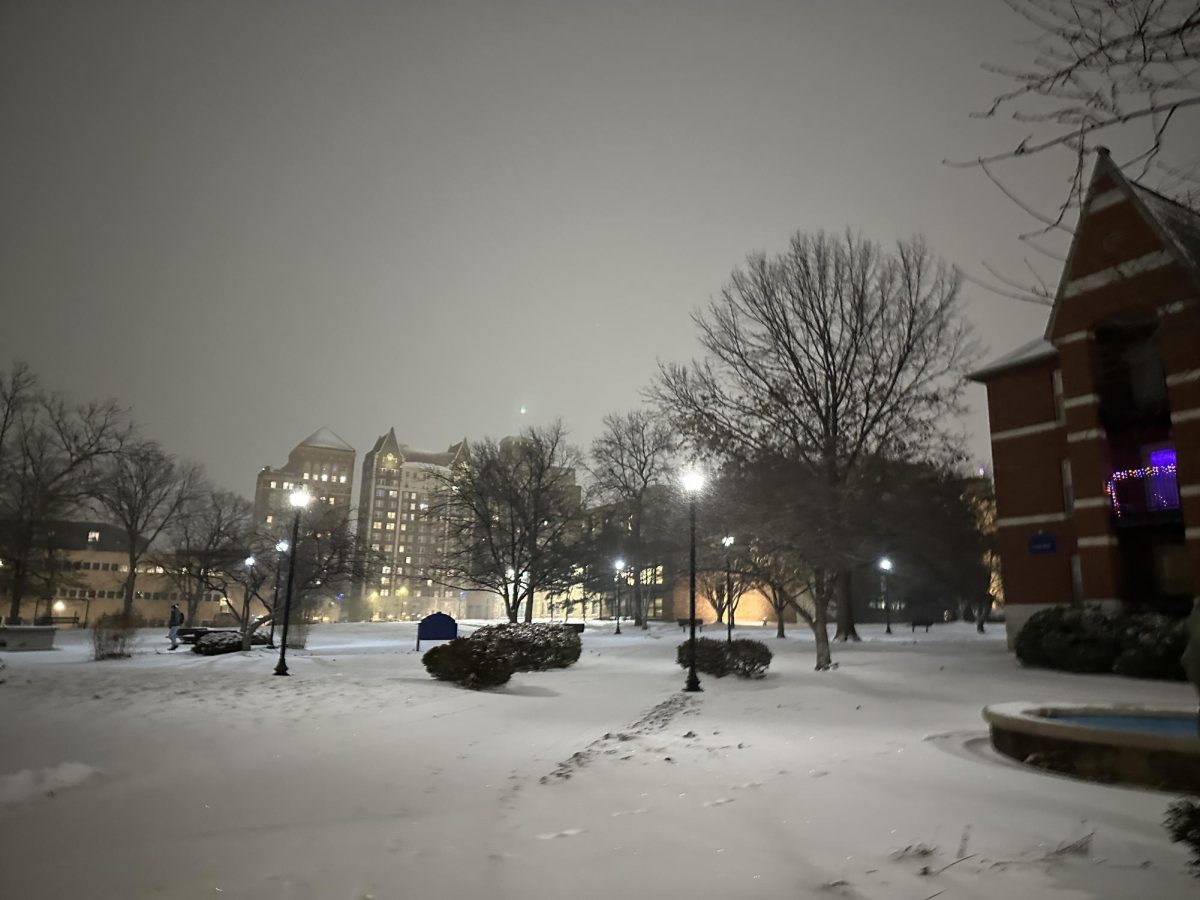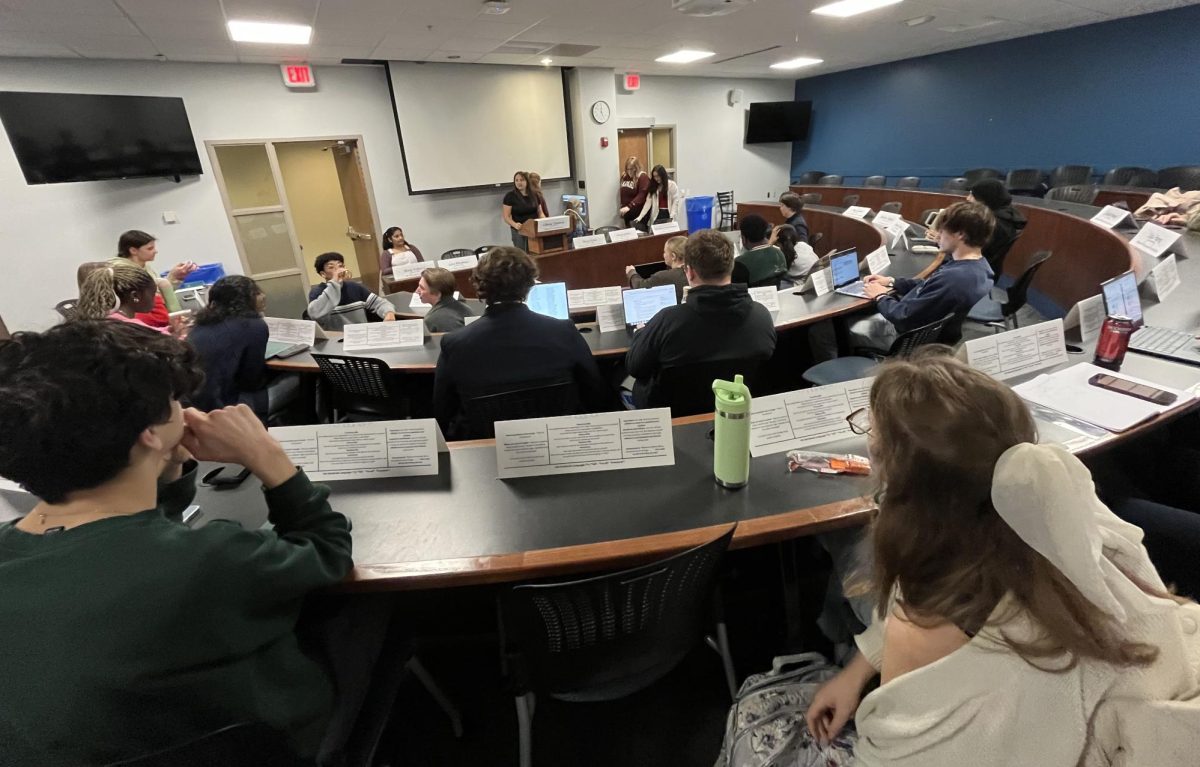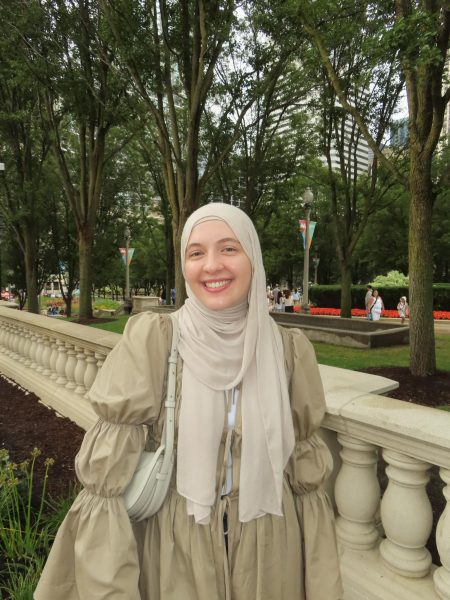Trash bags in one hand and garbage grabbers in another, nearly 40 Richard A. Chaifetz School of Business students spent a recent Saturday cleaning up discarded items from the grass and trails of Forest Park on Sept.7, 2024. The students, ranging from freshmen to seniors, were there as part of the New Student Forest Park Forever Project, a day of service organized by Chaifetz faculty.
This event was organized to help business students kick off the semester by getting them excited about community engagement and introducing them to the Service Leadership Program, an academic minor exclusively for business students that requires community service hours in addition to classes.
The official slogan of Chaifetz is “Where Mission Meets the Market,” challenging students to think about how they can apply their business education to a greater calling.
Ben Smyth, the Director of Co-Curricular and Service-Learning at Chaifetz and one of the main organizers of the service event, said people on campus often question how business connects to a broader mission of service. However, Smyth values the “practicality” of business students and how they can be challenged to find their greater calling.
“What is special about a business school embedded in a liberal arts institution, is that we are professional in nature but we help form our students in a more rounded way, so that they learn how to think and how to, in our case, hopefully empathize with the world, and then they take that with them into the professional world,” Smyth said.
The Service Leadership Program has been facing recruitment issues since COVID-19 hit. The program previously recruited about 40-60 students a year, but now, that number has dropped to 20-30 students per year. However, as Smyth’s role at Chaifetz has become more all-encompassing, so have his goals for community engagement. He is now trying to broaden the service mission beyond just the Service Leadership Program.
SLU boasts several other opportunities to get involved in service, including the Center for Social Action, the 1818 Community Engagement Grant Program and service-learning opportunities integrated into the curriculum. In 2020, The Princeton Review ranked SLU No. 2 in the nation as the university most engaged in community service.

At the service event, students met briefly with Forest Park Forever staff in the Dennis & Judith Jones Visitor and Education Center before heading out in groups to clean up the surrounding area for an hour and a half.
Alanna-Paige Pinkney, a freshman pursuing a bachelor’s in Entrepreneurship and a minor in Service Leadership, was unsure at first about attending the service event. Afterward, she found that she got to understand more of the St. Louis community and meet new peers.
“Even with the small pieces of trash that we picked up, I think that it made a change,” Pinkney said.
During her college search, Pinkney was attracted to SLU and the Service Leadership Program because they aligned with her values of serving the community and figuring out what makes a community. In her hometown of Memphis, TN Pinkney held workshops at local community centers to teach children vocational skills and help them develop their passions. Pinkney is committed to continuing this work at SLU as a business student.
“The future that I envision in working in business is to create community among children,” Pinkney said. “I think that it’s extremely important for children not to think always about survival or making the most money, but to find something that they’re passionate in, especially for children with broken homes…children who are really confused about where they are in life, teenagers who think they have it figured out, but don’t necessarily have the resources to get there, children who are immigrants, children with immigrant families.”

Beyond the positive results of Saturday’s event, Smyth and Pinkney both expressed the importance of thinking critically about intentions and approaches to community engagement to avoid doing more harm than good.
As an African American student, Pinkney has observed that SLU is predominately white despite how diverse St. Louis is. She worries that people will adopt a “savior complex” when doing service without fully understanding the experiences of those in the area they are claiming to help.
“We have to discuss topics like that, the harsher topics of like…are we doing the right thing here?” Pickney said. “Are we aware of the community that we’re in, you know, or are we…forcing our own community that we have here in Saint Louis University, on the native St. Louisans?”
Smyth shares a similar understanding and emphasizes that students should consider the root causes of the issues they encounter. He also encourages students to think about the social change component of community engagement.
“An education, whether it’s at SLU or anywhere, but especially a place like SLU…needs to call us out,” Smyth said. “My thought is that to educate, to lead out, is a big piece of what we’re doing at SLU and what we’re doing in the business school, and we need to keep doing that.”













